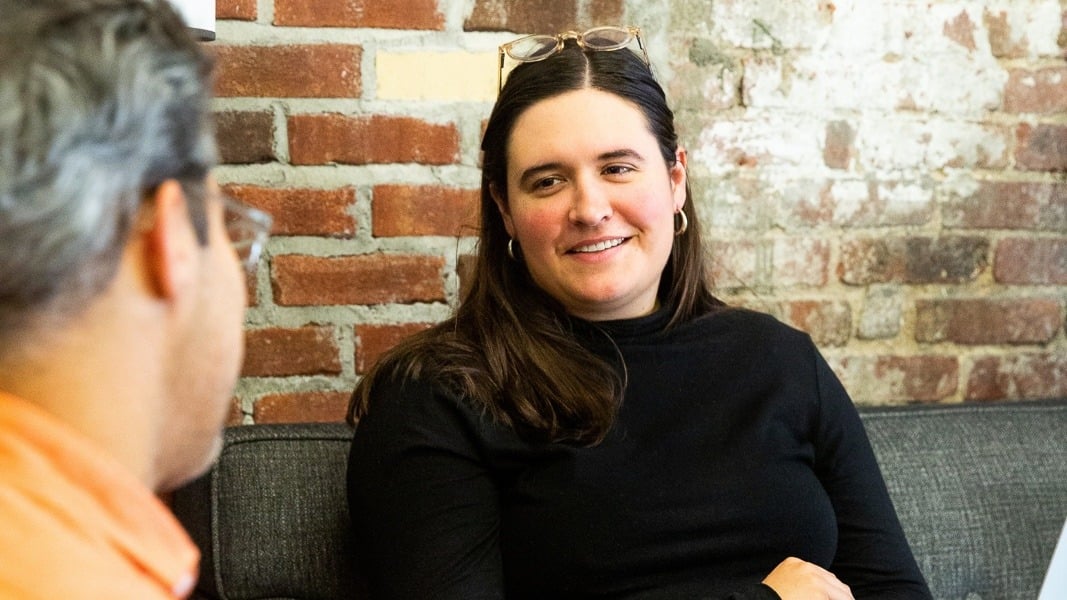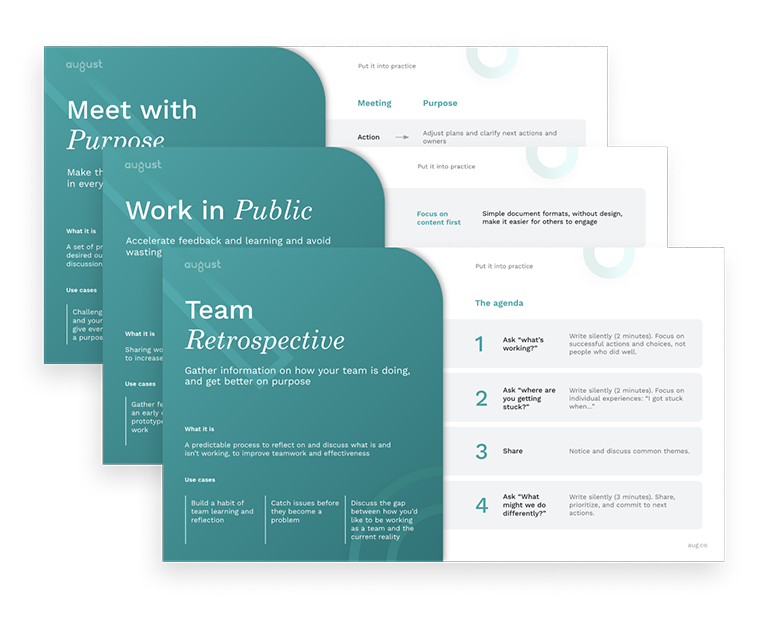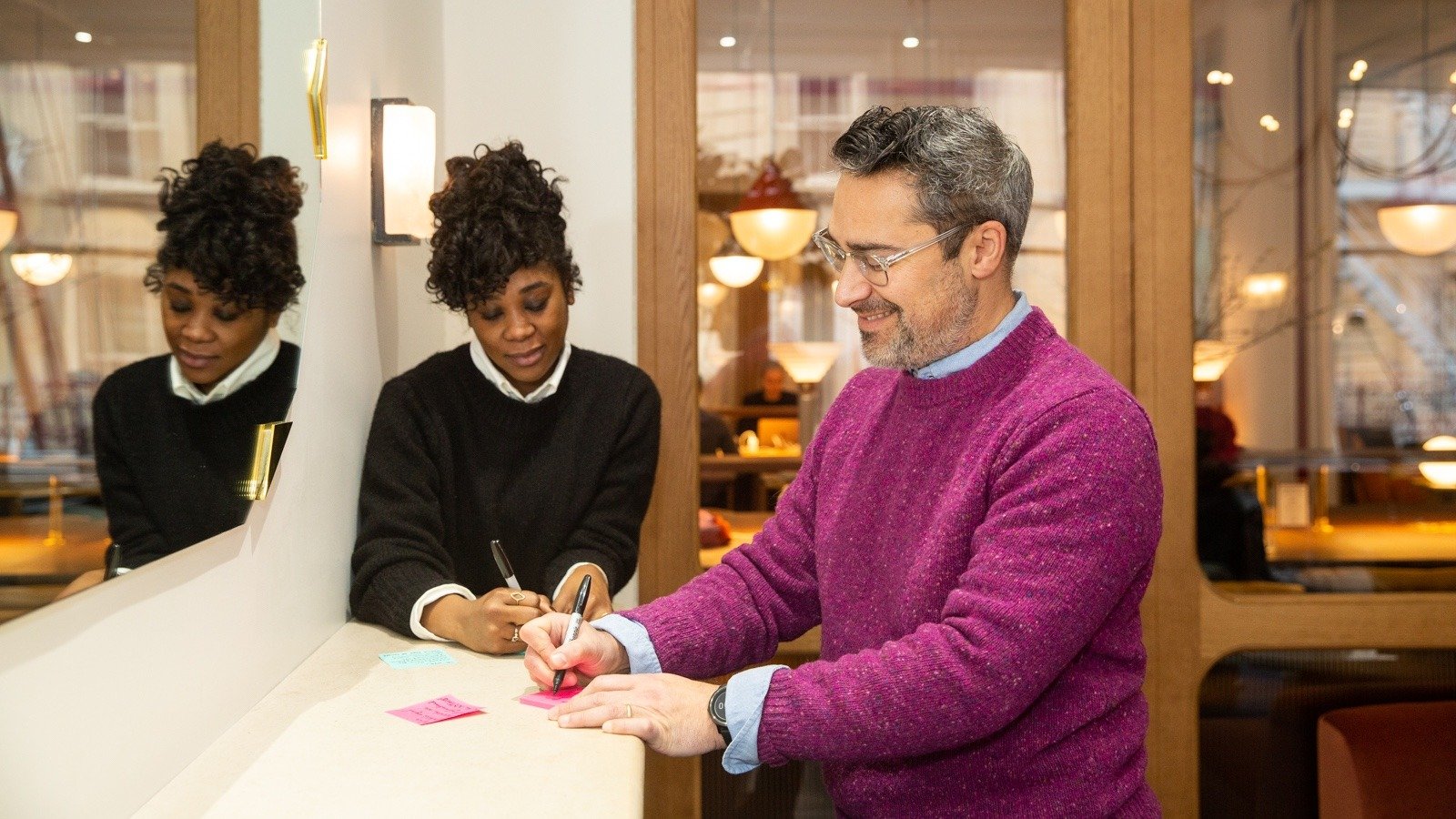Published October 1, 2024 | Updated October 8, 2024 | 5 minute read
I used to think trust between people was ineffable and absolute – either I trust you or I don’t. I knew that trust could be broken or earned, but I never had the sense that trust could be skillfully built.
Then I read Unleashed by Frances Frei and Anne Morriss. I remember sitting on a bench in Prospect Park, my eyes glued to the page as I absorbed each revelation of their Trust Triangle like a punch to the gut.
Trust suddenly had specificity, shape, dimension. I no longer saw it as a relational je ne se quoi, but as a discipline you can learn and get better at.
In the intervening time since my park bench revelation, my August pals and I have developed a robust framework for building REAL Trust, built on four cornerstones inspired by Frei and Morriss’s work.
Based on our research and insights gleaned from numerous org design partnerships, we’ve added Reliability to the triangle of Empathy, Authenticity, and Logic (REAL), and developed a practice-based model for building REAL Trust through everyday team practices.
We’ve developed this expertise because we are convinced that building trust is essential for resilient organizations that can thrive in the face of change.
Here are three reasons why building trust is so important.
Building trust is great for business.
There’s no shortage of commercial incentive for building trust.
Research shows that trust drives productivity while decreasing drag on everyday operations. And an astonishing 93% of business executives agree that “the ability to build and maintain trust improves the bottom line.”
For many organizations, these statistics are reason enough for making a robust investment in building trust.
But for me, as strong as the business case for trust may be, the human case is even more compelling.
Which leads me to reason #2 why building trust is so important…
Building trust improves the employee experience.
We should care about how people feel in our workplaces. And I know from personal experience that working in a low-trust environment feels terrible. It’s disengaging and disheartening. It can even be physically stressful!
I still carry memories of what it felt like when a colleague failed to show me genuine care, or didn’t walk the talk, or showed questionable judgment.
People who work at high-trust companies, on the other hand, report 74% less stress, 106% more energy at work, 76% more engagement, 29% more satisfaction with their lives, and 40% less burnout compared to people at low-trust companies.
If that isn’t reason enough to prioritize trust, I don’t know what is.
Building trust makes teams more effective.
I think of trust like a cultural lubricant that reduces friction between people and teams, enabling better decisions, braver experiments, and quicker pivots.
- Building trust helps increase psychological safety, which enables teams to learn new things quickly and navigate failure effectively.
- Building trust promotes equity and inclusion, helping team members more openly learn from each other’s experiences and perspectives.
- Building trust increases agility, helping teams rapidly shift priorities and adapt to new circumstances.
But lack of trust grinds the gears, creating noise and smoke and waste, slowing everything down and risking catastrophic damage.
So how do we get better at building trust?
First of all, we need to resist the temptation to simplify trust into a technical problem with a formulaic solution.
Trust is interpersonal, not procedural.
No matter how precise your processes are, a lack of trust will break those systems every time.
Secondly, we need to be courageous about finding the root cause of trust issues.
This requires us to be willing to dig into our own areas of discomfort and weakness around trust, and have brave conversations with others about how we can build trust over time.
Understanding the Four Cornerstones of REAL Trust is the first step in that work.
We’re all capable of getting better at building trust.
In my work at August I’ve seen firsthand the power of translating big, aspirational ideas into everyday practices and skills.
Building trust is one such idea. It can seem idealistic and unattainable, but when we break it into component skills that can be developed through explicit team practices, it’s amazing to see how quickly it can transform a company culture.
Building trust has huge personal benefits as well. Nowadays when I feel frustrated or avoidant with a coworker, I have a framework for understanding it as a trust problem, and the language to diagnose it and start making it better.
Trust has become a lens through which I understand all my relationships, personal and professional.


.jpg)








